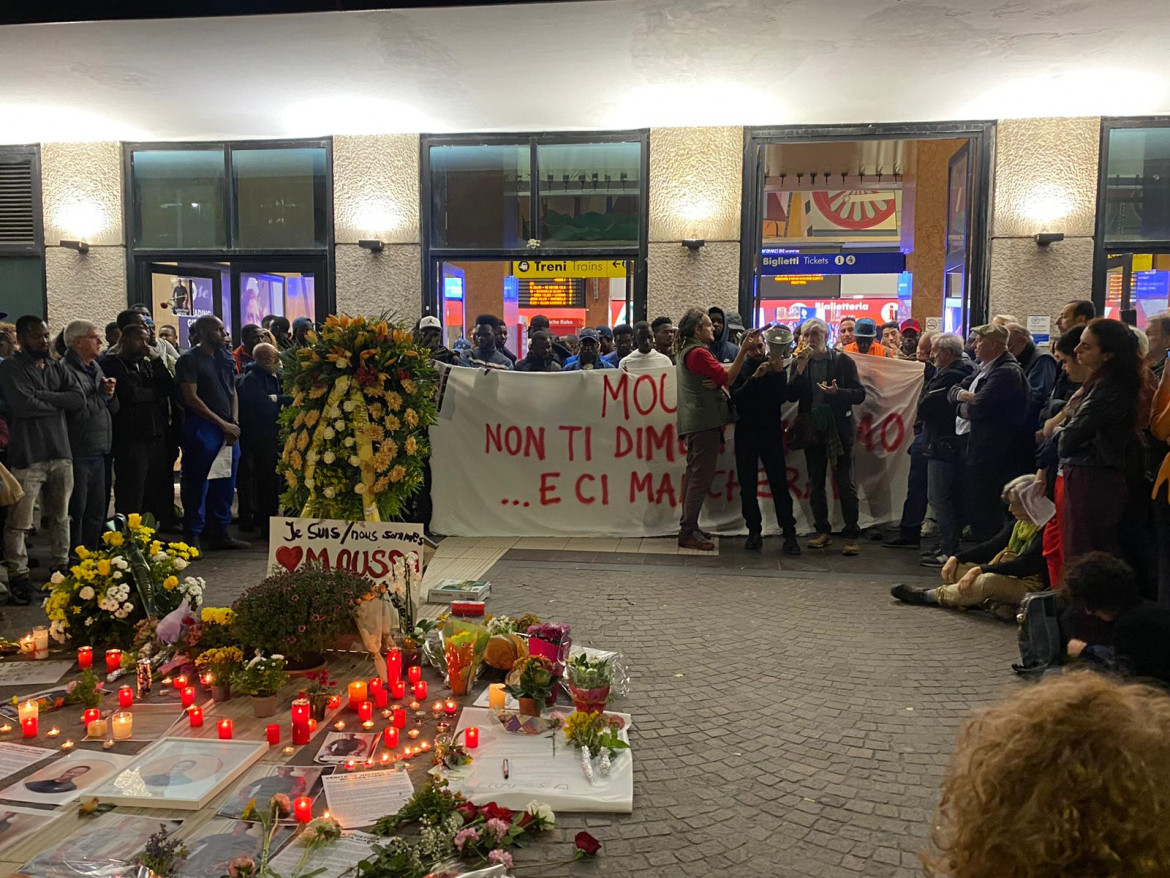Analysis
The life of Moussa Diarra, killed by Railway Police, scorned by Salvini
A mentally distressed immigrant tried to attack Italian transit police, who shot him to death. Matteo Salvini couldn’t help but weigh in. ‘With all due respect, we won’t miss him.’ But his brother will.

Many people came to the Verona train station on Monday evening to lay bouquets in memory of Moussa, the 26-year-old Malian who was killed in an incident that took place early Sunday morning.
The young man, in an obvious state of mental distress, allegedly tried to attack three Railway Police officers with a knife, one of whom fired three shots at him, killing him on the spot. But while it’s still unclear how the incident unfolded – currently under investigation by the judiciary – politicians wasted no time in exploiting it for their own purposes.
In Verona, the right-wing opposition immediately lashed out against migrants and what they deem to be the overly permissive policies of the city council led by Mayor Damiano Tommasi. It was a given that Matteo Salvini would also introduce himself into the conversation like a bull in a China shop: “With all due respect, we won’t miss him. Thank you to the policemen for doing their duty,” he wrote on social media.
But who was this young man from Mali whom the Lega leader “won’t miss”? His name was Moussa Diarra, and he had fled the war that had torn up his country. His dream was to work in the fields in Italy, like his brother. Having landed in Lampedusa in 2016, after going through the Libyan hell, he was detained at the Costagrande Extraordinary Reception Center in Verona, a facility that has since been shut down, infamous for the appalling conditions in which it held its “guests.” Here, Moussa began running the gauntlet of obtaining a humanitarian residence permit and seeking work. By the time he was released, he was suffering from depression and mental disorders. But outside the Center, there was nothing waiting for him – a reality for Moussa as for so many others.
Activists from the Paradotos social center found him a bed at the Ghibellin Fuggiasco, an occupied space that strives to offer the homeless the minimum level of assistance that the state does not guarantee. In the evenings, he would eat something at Rifugio Due, a center set up by the Ronda della Carità and the One Bridge To Idomeni NGO to give legal support to those in need and help them find work. They mostly help foreign nationals, but many Italians as well.
“Moussa had come to our help desks this summer, looking for legal support to obtain the necessary documents to get legal status and work,” explains Jacopo Rui, coordinator of the help desk. “Banks and employers won’t even look at the provisional writs that the police issues, and he had adapted to living on the street. There are many in his situation. It is certainly no wonder that mental distress can ensue. He should have been treated, not killed like that.”
The young man had turned to Verona's Immigrant Health Center (CESAIM) for help, but, as his friends recount, on some days he couldn’t even get out of bed because of depression. Because of this, he had missed his Oct. 10 appointment to renew his residence permit. “At this point, he didn't believe in anything anymore,” says a migrant friend of his. ”He only dreamed of going back to Mali.”
Activists from Paradotos had tried hard to shake him out of his apathy and had urged him to take part in the recovery of a large abandoned building on Via Villa in Quinzano. “On Saturday and Sunday, we went to clean up the area,” says Giorgio Brasola from Paratodos. “Moussa had told us he would join us on his bicycle. But he never arrived. We were gathered in a meeting when the news of his death came. We no longer had the strength to continue. One cannot die like that at the age of 26. We will form a committee to demand truth and justice for Moussa and all others like him. We don't want to live in a violent country where we respond to social and mental distress with deadly weapons.”
Among the more than 500 people mourning the Malian young man on Monday evening was his brother, Djemagan Diarra, who had just arrived from Turin. “He was not a thug. I don't want him to be remembered like that. He was ill. He was subjected to everything in Libya. It's not fair.” He, at least, is one person who will miss his brother.
Originally published at https://ilmanifesto.it/vita-di-moussa-diarra-ucciso-dalla-polfer-oltraggiato-da-salvini on 2024-10-22
